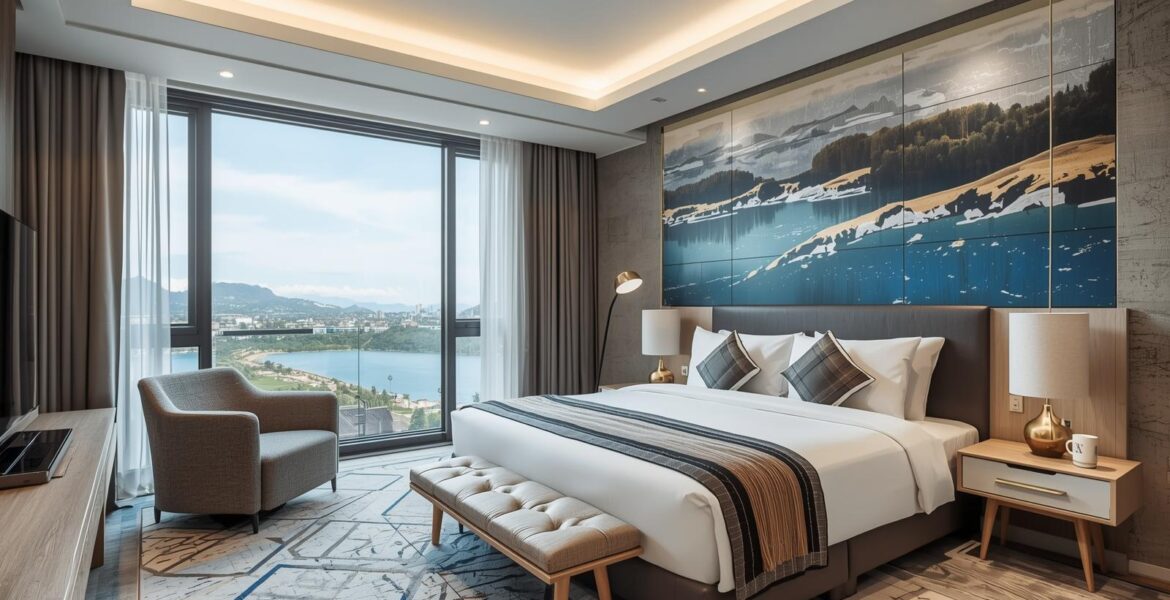In the ever-evolving world of travel, boutique hotels have carved a unique niche by offering guests an experience that transcends the ordinary. These intimate retreats prioritize authenticity, local culture, and personalized service over grandiose displays. As a result, they provide travelers with a richer, more meaningful connection to their destination. Let’s explore how boutique hotels enhance guest experiences by blending style, service, and substance in perfect harmony.
The Essence of Boutique Hotels
Intimacy and Personalization
Boutique hotels, by definition, tend to be smaller in size compared to their larger counterparts. This allows for a level of intimacy and personalized service that larger hotels often struggle to match. Each guest is treated with an individual touch, ensuring their needs and preferences are met with care and attention.
The limited number of rooms means that staff can focus on providing tailored experiences, from remembering your name to curating personalized itineraries. Guests often find themselves feeling like part of an extended family rather than just another visitor. This personal touch is a cornerstone of the boutique hotel experience, creating a warm and inviting atmosphere.
Unique Design and Aesthetic
One of the defining characteristics of boutique hotels is their unique design and aesthetic. Unlike chain hotels, which often adhere to a standard template, boutique hotels celebrate individuality and creativity. Each property has its own distinct personality, often reflecting the local culture and history.
Interior design plays a crucial role in setting the mood and atmosphere. From the choice of furnishings to the color palette, every detail is carefully curated to create a sense of place. This attention to detail is not just about aesthetics; it’s about crafting an environment that enhances the overall guest experience.
Authentic Local Experiences
Embracing Local Culture
Boutique hotels offer an authentic taste of the local culture, providing guests with opportunities to engage with their surroundings in meaningful ways. Many boutique hotels collaborate with local artisans, chefs, and guides to offer experiences that are deeply rooted in the community.
Whether it’s a cooking class featuring regional specialties or a guided tour led by a local historian, these experiences allow guests to gain a deeper understanding of the destination. This focus on authenticity and cultural immersion is what sets boutique hotels apart from more generic accommodations.
Culinary Delights
The dining experience at a boutique hotel is often a highlight of the stay. Many boutique hotels boast on-site restaurants that showcase local ingredients and culinary traditions. Chefs take pride in crafting menus that reflect the flavors of the region, often incorporating seasonal produce and traditional cooking methods.
Dining at a boutique hotel is not just about nourishment; it’s a celebration of the destination’s culinary heritage. Guests are invited to savor dishes that tell a story, creating a deeper connection to the place and its people.

Elevated Amenities
Thoughtful Amenities
While boutique hotels may not have the extensive amenities of larger resorts, they more than make up for it with thoughtful, high-quality offerings. Every amenity is carefully considered to enhance the guest experience, from luxurious linens to artisanal bath products.
Common spaces in boutique hotels are designed to encourage relaxation and socialization. Cozy lounges, intimate gardens, and serene pools provide guests with spaces to unwind and connect with fellow travelers. These areas are thoughtfully designed to foster a sense of community, allowing guests to share stories and experiences.
Wellness and Relaxation
Wellness is an integral part of the boutique hotel experience. Many properties offer spa services that focus on holistic healing and rejuvenation. Guests can indulge in treatments that incorporate local ingredients and traditional techniques, providing a unique and restorative experience.
In addition to spa offerings, boutique hotels often provide wellness activities such as yoga classes, meditation sessions, and nature walks. These activities are designed to promote relaxation and well-being, allowing guests to leave feeling refreshed and rejuvenated.
The Role of Storytelling in Boutique Hotels
Crafting a Narrative
Storytelling is a powerful tool that boutique hotels use to create a memorable guest experience. Each hotel has its own story to tell, often rooted in the history and culture of the destination. By weaving these narratives into the guest experience, boutique hotels create a sense of connection and belonging.
From the moment guests arrive, they are invited to become part of the hotel’s story. This narrative is often reflected in the design, service, and experiences offered, creating a cohesive and immersive journey.
Building Connections
Boutique hotels excel at building connections, not just between guests and the destination, but also among guests themselves. The intimate setting and personalized service create an environment where guests feel comfortable engaging with one another.
Social events, communal dining experiences, and interactive activities provide opportunities for guests to connect and share their travel experiences. These connections often lead to lasting friendships and cherished memories.
Conclusion
In a world where travel can sometimes feel impersonal and commercialized, boutique hotels offer a refreshing alternative. By prioritizing intimacy, authenticity, and personalized service, they create meaningful experiences that resonate with travelers long after they return home.
For travel agents, lifestyle influencers, and hotel managers alike, understanding the unique appeal of boutique hotels can unlock new opportunities to delight and inspire discerning travelers. As you plan your next journey, consider the transformative power of staying in a boutique hotel, where every moment is designed to enhance your connection to the world around you.


